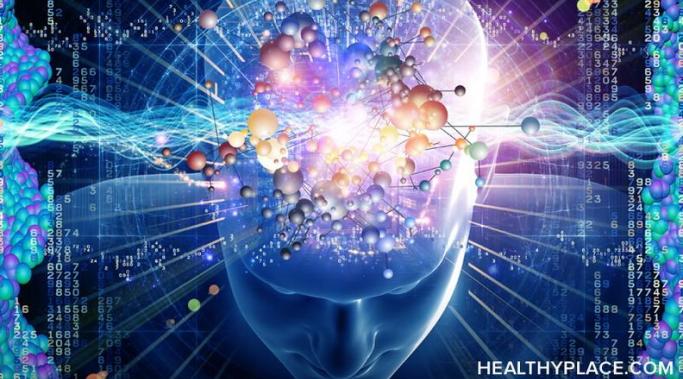Happy holidays, all. I am back from my family sojourn and feeling exhausted from it. Which is odd, actually, because nothing stressful happened. I worked, we ate, we played cards we pretended to be happy (some more than others) and the holiday passed by.
And a giant "meh" was heard by all.
And yet still I find myself crippled with exhaustion and stress post-holiday. Why, exactly, is that?
Impact of Bipolar
The holidays are no longer around the corner; the holidays are now here - on top of us. The holidays have overtaken us. They have lay siege to our everyday lives and they have won. The holidays! Ack!
And while this sieging of lives has its plusses (like prezzies) it also has its downsides - like instability.
So now that you're staring the fat man in the eye, here's what you need to know to have a safe holiday and an unhospitalized new year.
Recently someone who I consider a friend had some rather unfortunate things to say about me, including that I'm narcissistic. This, I do not believe to be true. Not even a little. Nevertheless, this particular insult echoed inside my brain over and over until I was sure it was stabbing the inside of my head with heated spikes.
I couldn't let it go.
I tried, really I did. I told myself it's not about me. It's just one person's opinion at one moment. It isn't true. And so on, and so forth. But my brain had a death-grip on the insult and refused to let it slip.
So what do you do when you're obsessive, bipolar brain turns to thoughts of crazy?
Recently, someone who was new to the world of bipolar disorder asked me if there was a cure for bipolar disorder or if he had to live like this forever. I had to, of course, tell him there is no cure. I felt like I was telling him his dog was about to die. I felt like knowing this, he might give up.
Recently a doctor stopped by my blog and asked about types of thoughts people with bipolar disorder have. Specifically, he was asking about "crowded" thoughts. Crowded thoughts are likened to "too many people jammed into this office." Crowded thoughts constitute the experience of having too many thoughts at one time.
So it got me to thinking, what are the types of thoughts and what types of thoughts are typical for bipolar disorder.
If you have bipolar disorder or another mental illness it's easy to find yourself in a pit of self-hatred. If the depression doesn't get you there, regret over what you've done when you're manic might. Self-hatred is just all too common for those of us with mental health issues.
And self-hatred produces all kinds of effects - like ignoring self-care. You might find yourself not eating, not showering, not exercising, not being kind to yourself or constantly hearing a voice of hatred in your head. And the trouble with all these things is that not only are they "not good for you" they make you feel worse both in the short and the long term.
Making good self-care choices is a way of fighting back.
Sex is a basic human drive. We want to eat. We want to sleep. And we want to have sex. These are the things that bring us pleasure in life. Almost everything boils down to those three things.
But unfortunately, bipolar disorder and bipolar medication can affect all three. Bipolar disorder and its associated medication can make you eat. Or make you not eat. It can make you sleep. Or it can make you not sleep. And it can affect your sex life the same way.
But for some reason, doctors often take the effect on your sex life least seriously.
I have been burdened with side effects since the day I took my first psychotropic medication some 13 years ago. At that time the medication I was on made it impossible for me to be awake, pretty much ever. I had no idea how much hell I was in for and my doctor didn't seem to believe me when I told him about it. So I did the responsible thing - I just kept taking the medication, hoped the treatment would work and that the side effects would go away.
But that's mostly because I didn't know what I was doing. Today I know that severe side effects are something that we choose and are not something that is thrust upon us. We choose what we can live with, even tacitly, always have, always will.
One of the problems with mental illness is that it's invisible. As I've heard many times, "You don't look sick."
Well of course I don't. You're not looking at an fMRI.
And because we don't "look" sick, our illness moves into the "not real" category. Bipolar, the unreal illness, the imagined one.
And it's even worse because others will tell you that mental illness doesn't exist. Other's will confirm your worst fears and tell you what the tiny, horrible voice in your head has been saying - you're just imagining you're ill. Really, bipolar disorder doesn't exist at all.
But of course the voice is wrong and so are the ignorant people - bipolar is as real as it painfully, awfully, grippingly gets.
But that doesn't make it visible. And its invisibility makes it all that much harder to fight.
As someone recently said to me, Halloween should be a national holiday. It should be the "wear-something-fun-and-gorge-yourself-on-candy" day. It should be just a national day of fun when we're not supposed to be giving thanks or making love or hiding eggs. I could get behind that.
There are two reasons why Halloween is so fun:
1. You get to dress up and pretend to be someone else
2. You get to eat ridiculous amounts of candy and get a ludicrous sugar high
Well welcome to everyday bipolar disorder.

